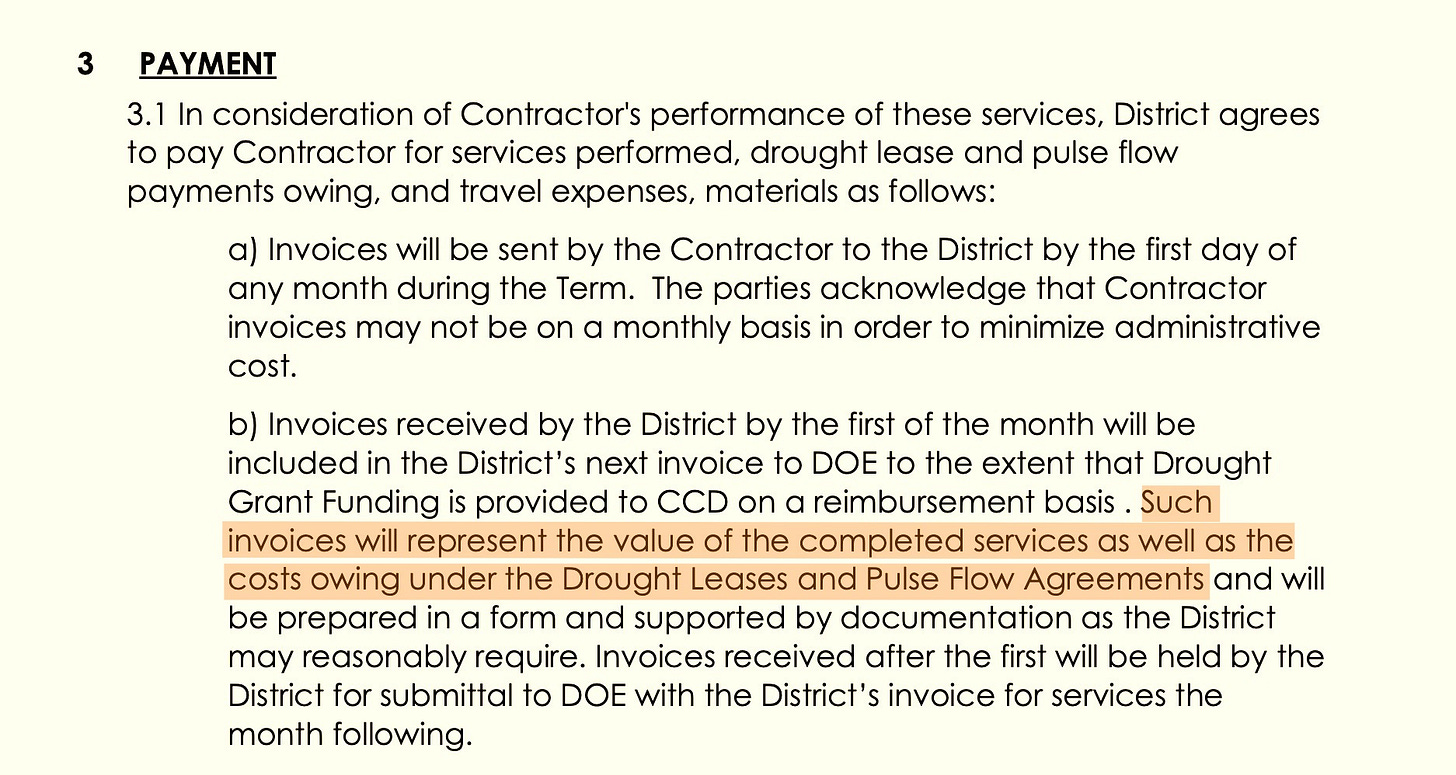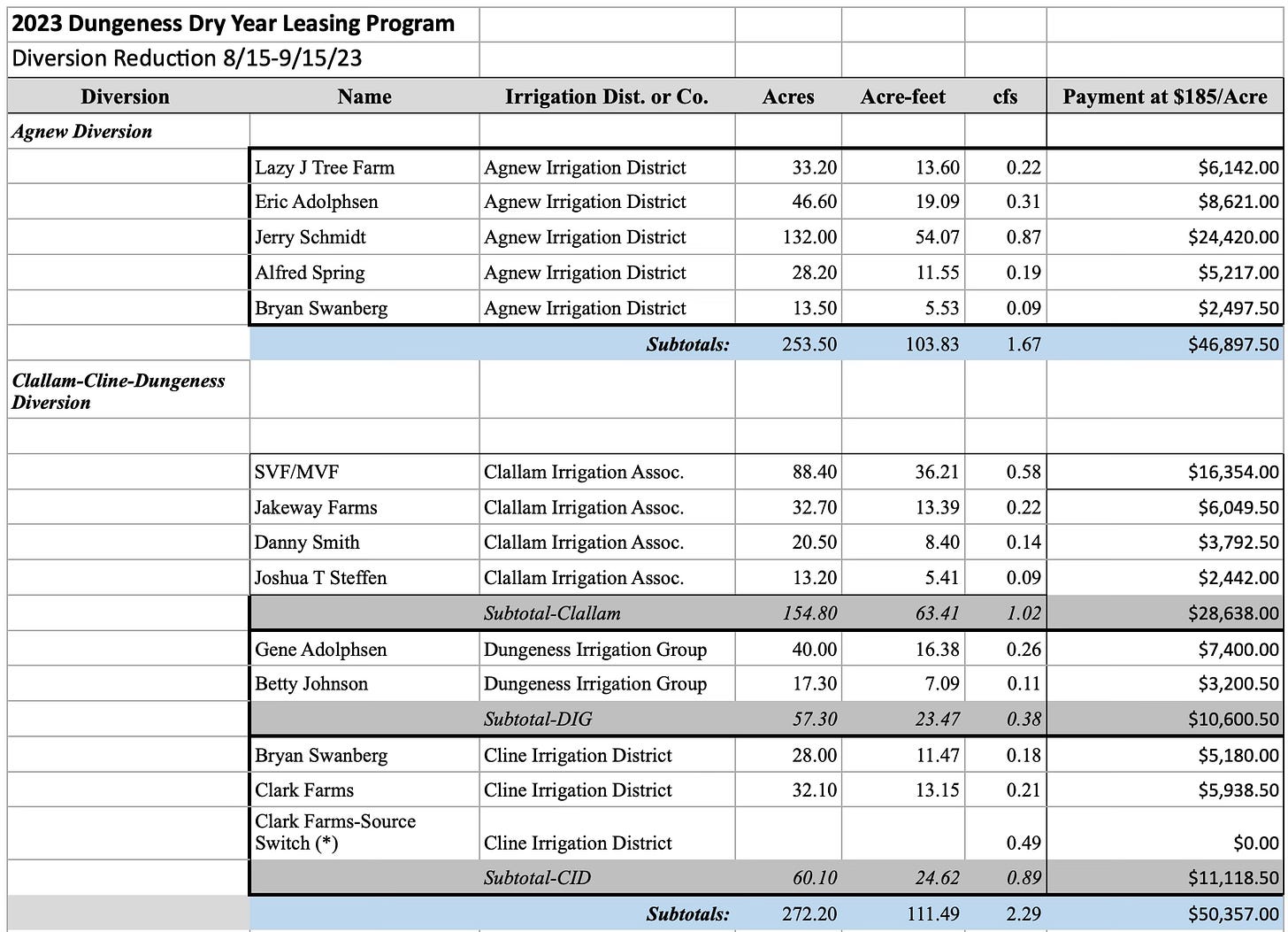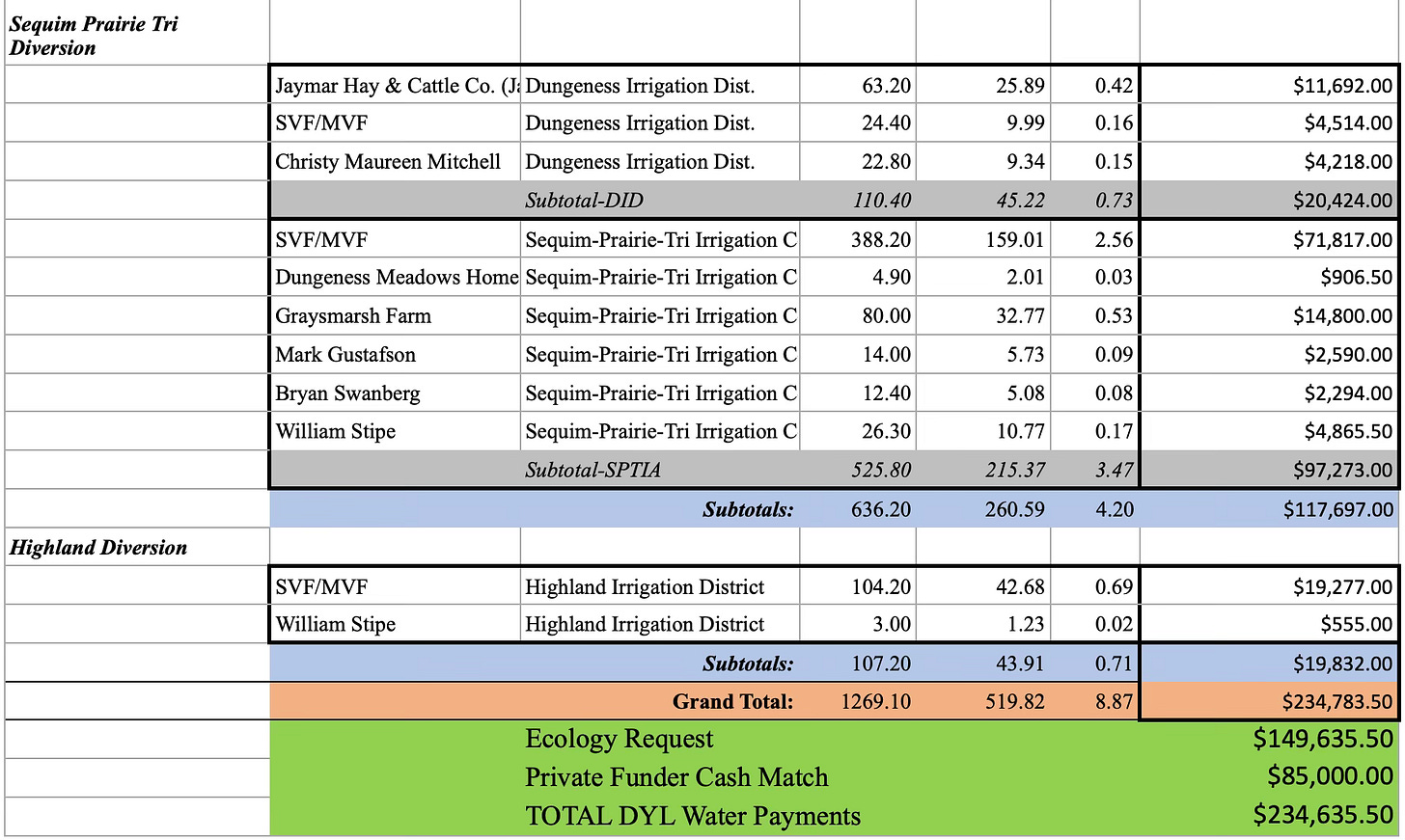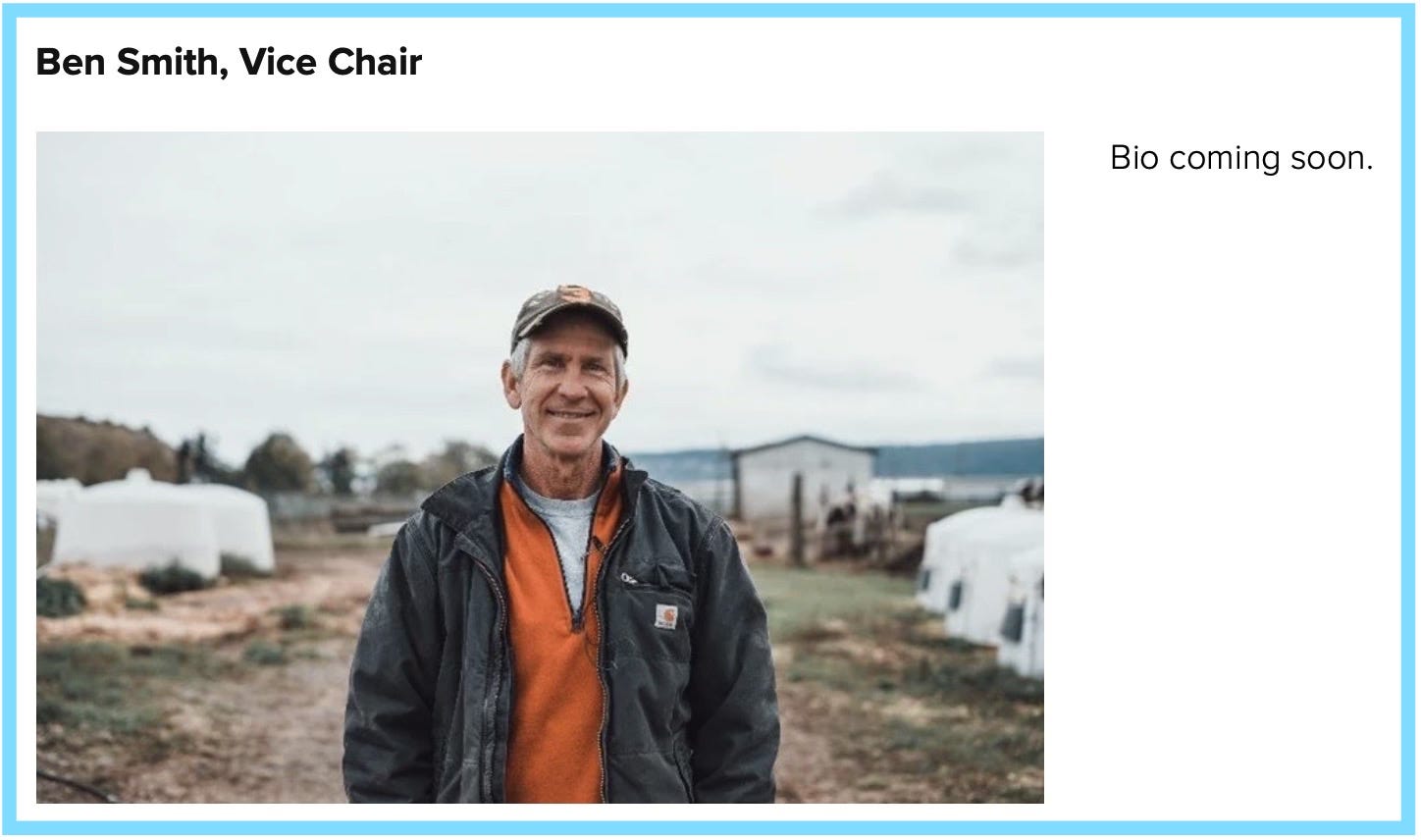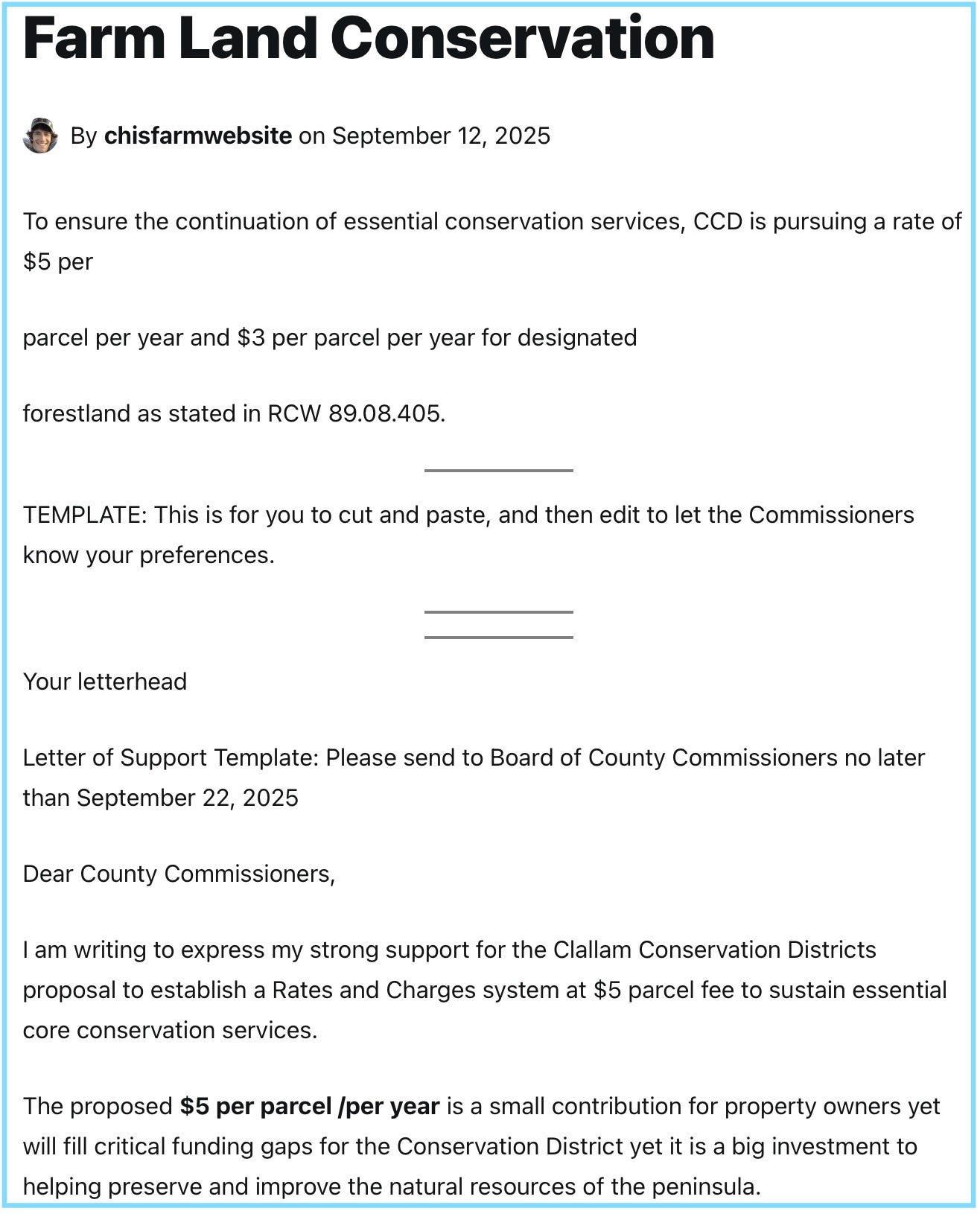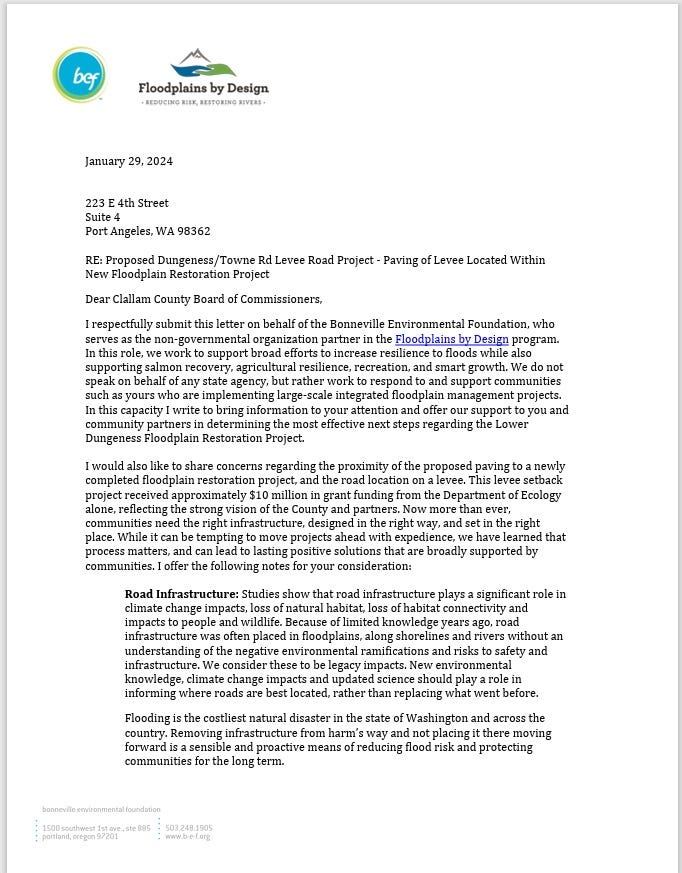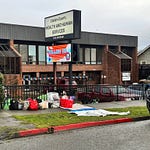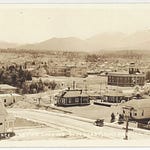At first glance, the Clallam Conservation District (CCD) presents itself as a champion of clean water and farming. But a closer look reveals troubling conflicts of interest, questionable payouts, and a lack of transparency—leaving taxpayers to wonder: who really benefits?
At Tuesday’s Board of Commissioners meeting, Commissioner Mark Ozias reported on last week’s Dungeness River Management Team session, where he serves as the county’s representative on the joint County–Jamestown Tribe body that controls most water-related decisions in eastern Clallam County.
Commissioner Ozias praised the Department of Ecology’s drought declaration for unlocking state funding, highlighting one program in particular: the dry leasing program, which pays farmers not to irrigate crops in order to leave more water in the river.
“The Washington Water Trust and the Clallam Conservation District work together to secure about $450,000 worth of funding to support the dry lease program,” Commissioner Ozias explained, noting the CCD itself brought in more than $200,000.
In other words, taxpayers fund the Department of Ecology, which funnels money to the CCD, which then pays farmers not to grow food.
By paying farmers not to grow food, the Clallam Conservation District actually inhibits the farming we are told they support.

Who gets the money?
It’s unclear who will benefit from the 2025 program, but records from 2023 show significant payouts to those with deep ties to the CCD.
Sequim View Farms / Maple View Farm (Ben Smith) — received more than $100,000 in 2023 for just one month of non-irrigation. Smith, who serves on the DRMT, isn’t just a farmer; he’s a CCD Supervisor, president of the Dungeness Water Users Association—the very organization Washington Water Trust has tapped to help divide up the funds.
Highland Irrigation District (the Smiths again) — water rights from this district are slated to fill and manage the proposed off-channel reservoir.
While entirely legal, the overlap between CCD supervisors and program beneficiaries highlights the need for clear disclosure and transparency.
The July 29, 2025 Memorandum of Understanding between Washington Water Trust and CCD confirms that CCD applies for state drought grants, then subcontracts with Washington Water Trust to administer the leases—paying farmers selected by the Dungeness Water Users Association, of which Smith is president.
Supporters with stakes
CCD backers of the $5 parcel fee also include prominent local farmers who have themselves benefited from CCD programs.
Scott Chichester (Chi’s Farm) is publicly urging patrons to lobby county commissioners for the CCD fee. At the last CCD public meeting, it was discussed that the CCD bought him a $26,424 custom “no-till drill” machine, covering 90% of the cost (he paid $2,642).
The CCD is featuring Chi’s Farm on a tour talking about cover crops later this month.
Meanwhile, CCD claims it “benefits everyone” countywide, yet its meetings aren’t recorded, the minutes are sparse and uploaded late, and the agency’s accounting of funds is wildly inaccurate. In 2024, the CCD collected just $25 in donations. If its services are so essential, why aren’t beneficiaries willing to fund it directly?
A pattern of influence
The dry-year leasing program isn’t just local. It’s run in partnership with the Department of Ecology, Washington Water Trust, and the Bonneville Environmental Foundation (BEF)—the same group that nearly stalled the Towne Road realignment project by siding with the Tribe to push for turning it into a park. (Remember last year’s fallout from Dr. Kathleen Guillozet’s letter?)
Time and again, well-connected players appear to benefit most, while taxpayers are asked to foot the bill for mandated fees.
The bottom line
The CCD presents itself as a neutral conservation agency. But its track record suggests it’s more of a conduit: moving taxpayer dollars to favored insiders under the banner of “environmental stewardship.”
Before commissioners approve the $5 parcel fee, Clallam residents deserve answers:
Why are CCD programs so heavily weighted toward those already at the table?
Why isn’t CCD transparent with its minutes and data?
Why should all property owners be mandated to pay when only a select few reap direct benefits?
Until those questions are answered, the CCD’s fee proposal looks less like conservation—and more like a subsidy for the well-connected.
Stop the $5 fee
Clallam residents still have a chance to make their voices heard. You can email all three county commissioners directly through the Clerk of the Board at loni.gores@clallamcountywa.gov—demand accountability and measurable results.
Better yet, join your neighbors in action:
📍 Drive-Thru Petition Signing
This Saturday, Sept. 20, 10 a.m.–4 p.m.
1052 Jamestown Road, Sequim
Bring your family, sign the petition, and meet organizer Jake Seegers and the CC Watchdog team.
✉️ Mail Your Petition
Download the 15-line form, gather signatures, and mail to:
Jake Seegers, 69 S. Point Rd, Port Angeles, WA 98363
Be sure to postmark by Today, Sept. 18 so petitions arrive before the commissioners’ vote.



